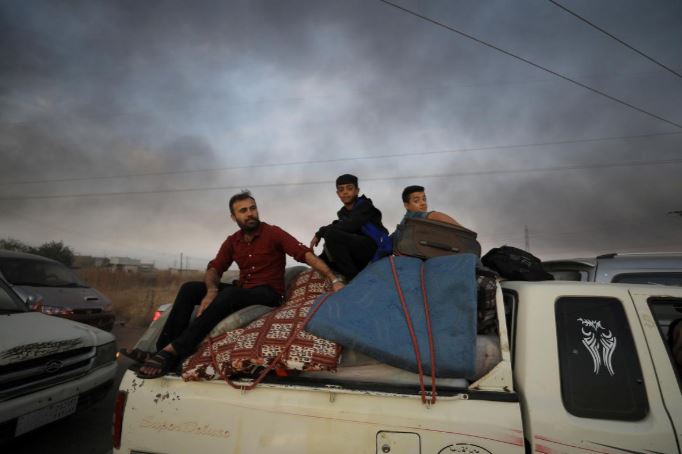As new Syrian exodus unfolds, some fear they will never go home
Kurdish doctor Farid Mustafa was one of the last to flee Ras al-Ain as Turkish bombs rained down on the Syrian border town. He fears he may never return home.

Beirut: Kurdish doctor Farid Mustafa was one of the last to flee Ras al-Ain as Turkish bombs rained down on the Syrian border town. He fears he may never return home.
He escaped on Thursday night with his wife and two small children as warplanes flew in the sky above a line of cars trying to get away from the border. A few people stayed behind to defend their homes.
“We were scared of the plane, not anything else,” he told Reuters. “Also my kids, I swear we’re not even worried about ourselves, but the kids. They were crying.”
Also Read: Australian regulator to require annual declarations on governance from banks
Some 100,000 people have fled their homes since Turkey mounted its offensive in northeast Syria on Wednesday, moving away from the border and deeper into the region - which the Kurdish YPG militia and its allies control.The exodus is the latest in Syria’s war that has already uprooted more than half of the population - some 11 million people - through years of multi-sided warfare which shattered the country.
Also Read |
Thousands flee, hundreds reported dead in Turkish attack on U.S.-allied Kurds in Syria
Mustafa, with some 30 family members, is now staying at a relative’s house in the city of Hasaka, where many residents have opened up their homes. He fears his Kurdish ethnicity would make him a target if his town of Ras al-Ain falls to Turkish forces and their Syrian rebel allies, enemies of the YPG.

“I’m not worried about my house, let it be destroyed,” he said. “But what if my town is gone, what will I do?” he said.
Ankara brands the YPG a security threat because of links to the Kurdish PKK which has waged a long insurgency inside Turkey. Turkey’s offensive, its third into northern Syria, kicked off after a withdrawal from part of the border of U.S. forces, whose presence had until then deterred such an attack.
The Syrian Democratic Forces (SDF), which the YPG spearheads, decried the U.S. move as betrayal after they fought alongside each other to crush Islamic State across much of Syria.
Also Read |
Turkey, Russia and Iran to hold summit on Syria in April
Still, U.S. forces have not all gone. Dozens of Syrians fled towards one of the U.S. bases outside the mainly Kurdish town of Kobani after it was shelled, some taking their cattle with them, a witness and a local official said. Kobani was the birthplace of the U.S.-YPG military alliance some five years ago, when Washington intervened with air strikes to help Kurdish fighters turn the tide against Islamic State. Kurdish leaders see their region as a relatively stable part of Syria that has enjoyed autonomy for years, shielded from Turkey and the Damascus government by the presence of U.S. forces.
Also Read: Australian PM to visit India next year, to deliver inaugural address at Raisina Dialogue
Having lost fighters in the war against Islamic State and played a critical role in helping to defeat the jihadists, long-persecuted Syrian Kurds had hoped to shore up their autonomy within a reformed Syrian state. That now looks in jeopardy. The Turkish offensive deals yet another blow to an ethnic group left stateless when the Ottoman Empire collapsed a century ago and the Kurds were scattered between Syria, Iraq, Iran and Turkey.

Turkish President Tayyip Erdogan says he wants to settle up to two million Syrian refugees, many of them of them Sunni Arabs, into the region targeted in the operation dubbed “Peace Spring”.(Reuters)
 Dynamite News
Dynamite News 